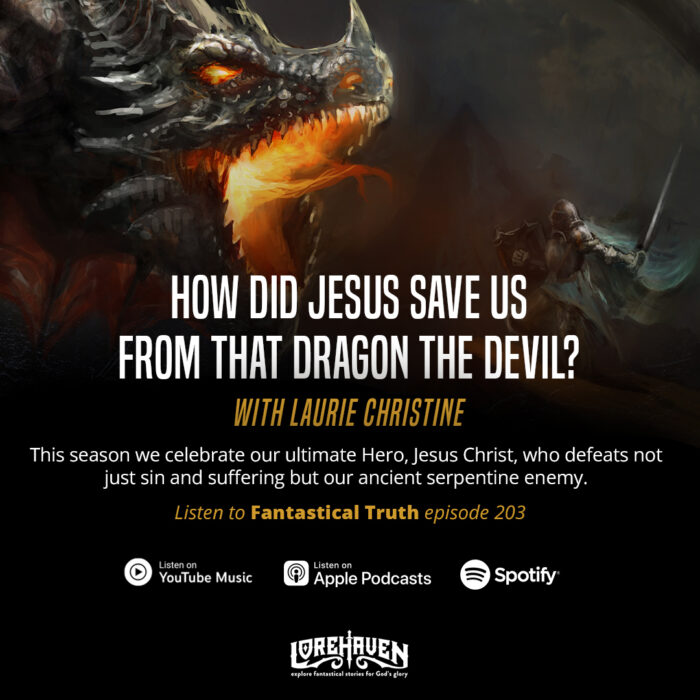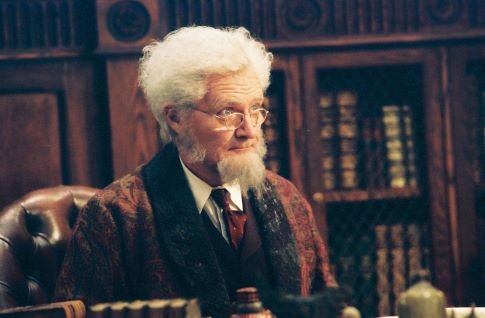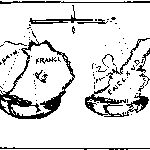Speculative Faith Reading Group 4: Reality and Narnia
 At the risk of sounding like conspiratorial politicians, or Dan “Da Vinci Code” Brown, I have a theory about The Lion, the Witch and the Wardrobe (LWW) that I’ve not previously heard.
At the risk of sounding like conspiratorial politicians, or Dan “Da Vinci Code” Brown, I have a theory about The Lion, the Witch and the Wardrobe (LWW) that I’ve not previously heard.
It answers this question: why did C.S. Lewis write about four children coming into the magical land of Narnia? Why not two, or three, or even one, in order to write a simpler story with a more-focused cast of characters?
One answer is that the age range of the children, though it’s never quite specified, allows a child of any age to have a representative. Yet I now believe there’s more to it than that.
Each one represents a different way of reacting to a fantasy world or story such as Narnia.
Lucy — the good child, trusting, wise, who naturally accepts this magical land. She is like readers who accept and love Lewis’s creations and enjoy the world without question.
Edmund — the flawed child, suspicious, wanting to “grow up” wrongly, foolish, gullible. He could be like readers who fancy themselves above Narnia or other children’s stories.
Susan — the flawed near-adult, practical, kind, but (later) wanting to “grow up” wrongly. She could be like readers who appreciate Narnia, but mainly for practical, worldly reasons.
Peter — the good near-adult, a strong leader, who isn’t averse to being “childlike” (notice his maturity, yet eagerness to explore the old house in chapter 1). He is like adult readers who have been like Lucy, yet can now lead others into Narnia with maturity and joy. “There is a kind of happiness and wonder that makes you serious” (Lewis, from The Last Battle).
As you read the book, or perhaps listen to the audio drama version, does this theory match what you read? That’s one question of these few to ponder, based on chapters 5 and 6 of the story, as this LWW reading group — at my church and informally online — continues.
Chapter 5: Back on This Side of the Door
- From the chapter title on, how do you feel about being “stuck” in this world, instead of going back into the wardrobe to discover something new in Narnia? I wonder if you now find this “real world” chapter very short, by contrast to how it seemed as a child when it seemed the children were stuck in the “real world” for a very long time!
- And now we come to one of the nastiest things in this story. Up to that moment Edmund had been feeling sick, and sulky, and annoyed with Lucy for being right, but he hadn’t made up his mind what to do. When Peter suddenly asked him the question [“What’s this all about, Ed?”] he decided all at once to do the meanest and most spiteful thing he could think of. He decided to let Lucy down.(page 44)
- Why does Lewis say, “And now we come to one of the nastiest things in this story”? Why give it away? Does he seem to warning us, or even apologizing in advance?
- It’s easy to say Edmund was wrong in what he did and why he did it, because he was very wrong. But does it make sense? Can you identify with Edmund, especially at a time when you were wrong about something and didn’t want to admit it?
- What about Peter’s response to Edmund? Based on this, is Peter right or wrong?
- In any one part or scene of a story that honors God, is it possible to have two people who are both right and wrong in different ways, who are “good guys” but do wrong things? If that’s true, how do we as readers tell the difference?
-

If the Professor (Jim Broadbent) from the 2005 Disney/Walden film had also had a bushy mustache, he would have been an exact replica of the book’s illustration by Pauline Baynes.
“How do you know,” [the Professor] asked, “that your sister’s story is not true?” … [Susan] had never dreamed that a grown-up would talk like the Professor and didn’t know what to think. (pages 47-48)
- How does the Professor’s response surprise Peter and Susan, and surprise us?
- Without considering The Magician’s Nephew, why may the Professor think like this?
- How do you feel when the Professor takes Lucy’s side and uses “logic” to prove it? By contrast, perhaps, how do you feel when he says “we might all try minding our own business” (page 51) and ends the conversation, not trying to investigate more?
- “If there really is a door in this house that leads to some other world … if, I say, she had got into another world, I should not be at all surprised to find that the other world has a separate time of its own; so that however long you stayed there it would never take up any of our time.”(page 49)
- Slight spoiler: oddly enough, we later find this to be true. What’s your view about the Narnian passage of time, which plays a key role in this story and the others?
- “Logic!” said the Professor half to himself. “Why don’t they teach logic at these schools? There are only three possibilities. Either your sister is telling lies, or she is mad, or she is telling the truth. You know she doesn’t tell lies and it is obvious that she is not mad. For the moment then and unless any further evidence turns up, we must assume that she is telling the truth.”(page 48)
- How often does this happen in real life — that someone trusted and not crazy tells an unbelievable story like this? Is such a situation only limited to stories?
- For those familiar with Lewis’s nonfiction, might the Professor’s words be familiar?
- From Mere Christianity, page 52: “A man who was merely a man and said the sort of things Jesus said would not be a great moral teacher. He would either be a lunatic — on a level with the man who says he is a poached egg — or else he would be the Devil of Hell. You must make your choice. Either this man was, and is, the Son of God: or else a madman or something worse. You can shut Him up for a fool, you can spit at Him and kill Him as a demon; or you can fall at His feet and call Him Lord and God. But let us not come with any patronising nonsense about His being a great human teacher. He has not left that open to us. He did not intend to.”
- Does this seem like a good argument about Jesus being God? What are any possible flaws? (Hint: you might recall that the Professor said, “unless any further evidence turns up.”) What additions or changes to the argument could make it better?
- And after that—whether it was that they lost their heads, or that Mrs. Macready was trying to catch them, or that some magic in the house had come to life and was chasing them into Narnia—they seemed to find themselves being followed everywhere …(page 53)
- We have three explanations for this apparent craziness. Which do you think it was?
- Can anyone really say for sure it was one reason over the other? Why does the author leave the question open and not explain it? Does he do this all the time?
- Is it okay for some “magic” in a Christian story sometimes to be unexplained?
Chapter 6: Into the Forest
-

I do believe the 2005 film (despite its flaws) perfectly portrayed all three transitions to Narnia.
“Ugh!” said Susan, stamping her feet, “it’s pretty cold. What about putting on some of these coats? … I am sure nobody would mind … it isn’t as if we wanted to take them out of the house; we shan’t take them even out of the wardrobe.” … They immediately carried out Susan’s very sensible plan. (page 55)
- Edmund and Lucy have already been in the wardrobe twice. Why did they not think of this? Might it show that some adult “sensibility” in a fantasy world is needed?
- “So you really were here,” [Peter] said [to Edmund], “that time Lu said she’d met you in here—and you made out she was telling lies. … Well of all the poisonous little beasts—” said Peter, and shrugged his shoulders and said no more.(page 56)
- Was Peter right to call Edmund on his sin? Was Edmund’s angry response right? Again, are both characters wrong in their own ways? How can we tell the difference?
- (Original British version:) signed MAUGRIM, Captain of the Secret Police … (Lewis’s change for an American revision:) signed FENRIS ULF, Captain of the Secret Police … (page 58)
- As with the children’s recitations of animals in chapter 1, why the difference here?
- Lewis never wrote about the reasons for the name change. We can only guess that it was based on his love for Norse mythology, in which Fenrisúlfr is a big wolf creature.
- (Peter speaking:) “… A robin, you know. They’re good birds in all the stories I’ve ever read. I’m sure a robin wouldn’t be on the wrong side.” (pages 61-62)
- Peter, as the near-adult who enjoys exploration and is open to new worlds, has read plenty of stories and believes they contain truth about reality. Is he right?
- Is Peter right about robins always being good? Does the author say so for sure?
- Why do you think Edmund is skeptical about the robin’s goodness? Why does Peter listen, especially when he’s still angry at Edmund for his lies and treatment of Lucy?








































I like your theory about the four children representing four reactions to the fantastic. There’s no way to know whether or not C.S. Lewis had something like that on his mind when he was writing, but it certainly helps explain things from our point of view, although Edmund’s coming redemption might complicate matters.
Peter said “I believe that you did it simply out of spite,” and of course, he was absolutely right. He doesn’t yet know the truth of Narnia, but I can’t see how he is in the wrong in any way at this point. He tried to verify Lucy’s initial claim, after all.
In Peter’s example, he did not know the real truth, but he was right about the moral significance of Edmund’s action. I certainly believe that it’s possible for “good guys” to be even more wrong than Peter is here and yet still to be right so far as they have enough faith to discern the difference between good and bad.
Because he does not consider human prejudices or arrogant pre-conceived notions. As such, I think he’s a great stand-in for C.S. Lewis himself, to us. I know that an author is not his character, but I think the Professor is the closest approximation of Lewis himself that we’ll get to meet. 😉
Testimonies of miraculous healing and similar things. I don’t disbelieve that God can heal, but some friends of mine, Christians who I doubt could flat-out lie, have testified of healings that really give me a hard time, because I can’t imagine why God would choose to heal in stages. I have to believe that at least many of the stories I’ve heard are true, but I can’t begin to understand.
The Trilemma doesn’t account for the fringe group that thinks that Jesus never actually existed at all, but that’s not much of a weakness.
The analogy to Lewis’s argument of Jesus’ deity definitely shows that in this book, belief in Narnia, in the fantastic, in wonderful and beautiful things that we cannot understand, is connected to believing in the name of Jesus Christ.
The kind of “magic” that drove the children into the wardrobe for their ultimate entrance into Narnia is a kind of magic that definitely exists in the real world — destiny, or God’s will. The use of the word “magic” helps me see this mundane world as fantastic. This world is made out of God’s word, and so this common type of “magic” is everywhere.
I wonder if there’s double meaning in Peter’s expression “Sharp’s the word,” when they first learn that Macready is leading a tour group (page 133 in my all-in-one edition, movie tie-in edition).
Interesting! My edition says “MAUGRIM,” although I think it’s an American edition. The question is, what connotations of “Maugrim” did Lewis or his publishers think would be lost on American readers?
Peter, as the near-adult who enjoys exploration and is open to new worlds, has read plenty of stories and believes they contain truth about reality. Is he right?
Is Peter right about robins always being good? Does the author say so for sure?
Lewis doesn’t give us any reason to suppose that Peter is not right about the robin, much less about stories containing truth. Edmund, however, rapidly dismisses the question, not bothering to ask whether or not Peter’s belief about robins is true, which I think would have been a legitimate and wise question. Instead, he goes into moral relativism, questioning whether there really is a “right” side at all.
This scene seems to be related to the very first chapter, when the children hear a noise in the house, and Edmund says “It’s only a bird, silly,” while Peter says “It’s an owl.” A relationship between birds and stories seems to have been built. In both situations, Peter finds more significance in birds than Edmund does.
My guess is that if we told Lewis of this idea, he would frown thoughtfully and nod. Ah, well. Fancy that. Yes, I suppose they do seem to be like this, don’t they? And then we would never really know whether he meant it that way.
Carrying the metaphor further, though, this shows how any person who tries to use fantasy for their selfish and falsely “grown up” ends — a traitor — “may mend,” as Edmund himself later says in The Horse and His Boy
I know that an author is not his character, but I think the Professor is the closest approximation of Lewis himself that we’ll get to meet.
I agree; he is a “close approximation.” And believe two things confirm this:
Spinoff thought: God does heal, and maybe in “stages,” but He never absolutely guaranteed it to those with the right or strongest “faith” every single time (2 Cor. 12). In this case, His Word is more reliable than even trusted friends’, and would be the only reason to doubt the testimony of friends who say they’ve been healed.
Amen! Because that position is just plain unreasonable.
I’ve seen the Trilemma challenged by Christians who give credence to the skeptic argument that the quote was simply made up. But frankly, Jesus apostles’ would have had as little reason to make up that quote for Him as we would have today. It’s not necessarily the most popular of His teachings, or the best way to spread a faith.
Amen again.
I think that if we called magic in stories “miraculous,” some Christians would have an easier time of things. Whereas if we called miracles in our world “magic,” they — even those who believe miracles happen — would freak out, strangely, of course.
All modern editions now revert to Maugrim. In this case, I actually think Lewis was not trying to avoid a reference lost on readers, but “amp up” the mythological connection. As far as I know, Maugrim has no meaning; it seems a made-up word mainly taking advantage of a nasty-sounding combination of maw (open mouth with teeth) and grim. Fenris Ulf, though, more directly ties to Norse mythology.
It adds a little bit of suspense, though, to end the chapter. Sometimes, even as a fan, I think of The Chronicles of Narnia as being so quaint and throwback-ish. Then I find that when actually re-reading them, Lewis’s style, with end-chapter “cliffhangers” and everything, is actually very “modern.”
As for their conversation, I do find it interesting that not only does Edmund actually try being political, or “kissing up to the boss,” but that Peter listens. This says something about them both: Edmund is not above more-subversive calculation, and Peter is a good leader who is not above paying attention to a truth Edmund does raise — that they could be getting lost, and neglecting the need to eat soon.
Even I have bought into the myth that Lewis’s early characters, at least, were not as well-developed as his later characters (or as characters in newer fantasy novels). In this re-reading, I am changing my view. The “simplicity” is deceptive!
I don’t have the book in front of me, but from recollection I think Peter was perhaps a bit tactless in the way he replied to Edmund, jumping on him like a ton of bricks.
Later, when they meet Aslan, Peter admits that he may have influenced Edmund’s going wrong. So even if what he said was right, he might have been better saying it in a different way (or not at all).